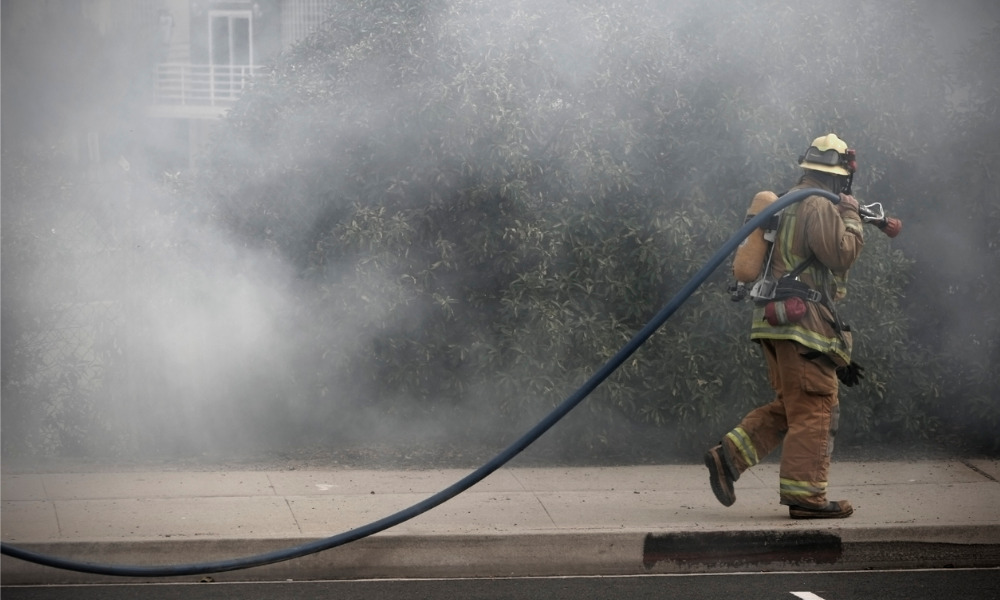
Tribunal's panel rejects doctor's apportionment of injuries to nonindustrial causes

The medical and vocational evidence in a recent case amounted to substantial evidence supporting that a worker was permanently and totally disabled due to his inability to benefit from vocational rehabilitation, a panel of the Workers’ Compensation Appeals Board said.
The County of Los Angeles employed the applicant in the case of Garrison vs. County of Los Angeles, permissibly self-insured; administered by Sedgwick Claims Management Services as a firefighter. He made two workers’ compensation claims.
In the first, the applicant claimed injuries to his skin, psyche, knees, lower back, colon, and hernia and injuries in the form of hearing loss, anal leakage, and anaemia for the period from Sept. 20, 1999 to Oct. 18, 2017. In the second, he claimed injuries to his right knee and lower back on Oct. 17, 2017.
Read more: California worker seeks compensation for injury allegedly arising from repetitive job duties
Independent medical evaluators (IMEs) evaluated the applicant’s workplace injury claims as required by a dispute resolution agreement between his union and the defendant employer.
The IME for internal medicine apportioned the applicant’s injuries in this way: 80 percent of the impairment was related to job stressors, while 20 percent was due to nonindustrial causes since he had underlying immunologic abnormalities in the form of rheumatoid arthritis.
Last December, the workers’ compensation administrative law judge ruled that the applicant was permanently and totally disabled, without apportionment to nonindustrial causes.
The defendant filed a petition for reconsideration. It argued that the judge failed to consider the evidence of nonindustrial apportionment. It also claimed that the reporting of the applicant’s vocational expert was not substantial evidence since it contradicted the medical-legal evidence, failed to abide by the principles and methods required in the vocational rehabilitation field, and disregarded the internal medicine IME’s nonindustrial apportionment.
The judge prepared a report that recommended the denial of the defendant’s petition.
A panel of the Workers’ Compensation Appeals Board of California mostly affirmed the workers’ compensation judge’s decision. The panel found the applicant entitled to unapportioned compensation relating to his disability arising out of his internal medicine conditions because the defendant failed to prove nonindustrial apportionment.
The vocational expert’s reporting showed that the applicant had permanent and total disability, the panel determined. It also established that he was not feasible for vocational retraining for suitable meaningful employment due to the residual effects of his work-related injuries.
The vocational expert’s reporting was more well-reasoned, persuasive, and reflective of the applicant’s testimony and the medical-legal evidence, the panel explained.
On the other hand, the panel found no substantial evidence supporting the apportionment analysis of the internal medicine IME. The analysis failed to explain how and why the applicant’s preexisting rheumatoid arthritis caused permanent disability at the time of the evaluation or was responsible for approximately 20 percent of disability.
However, the panel granted reconsideration for the sole purpose of deferring the issues of the permanent disability start date and the associated benefits. The judge’s decision did not identify a commencement date, which was a key component of a permanent disability award, the panel said.